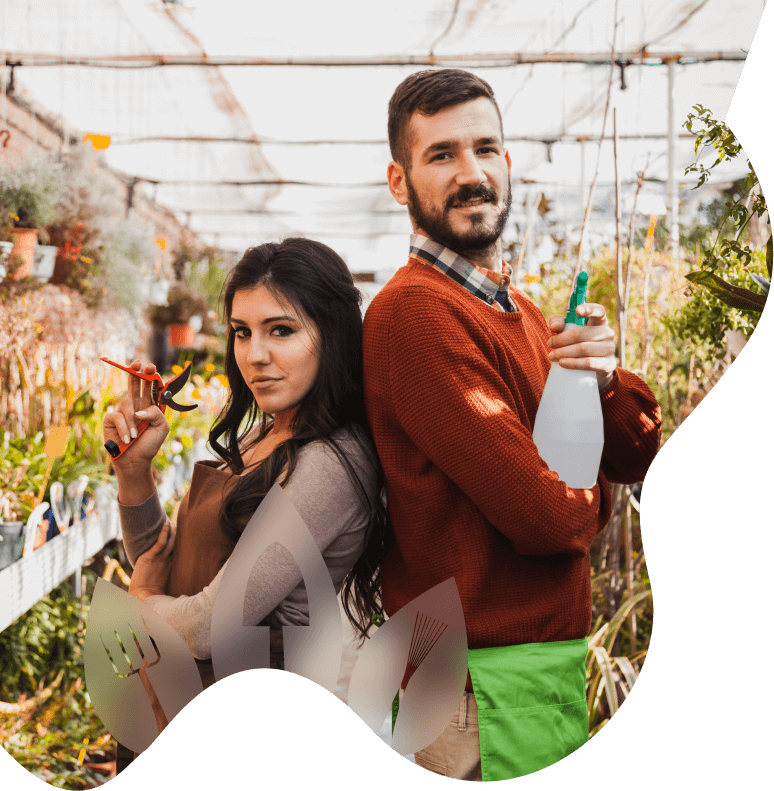Gardeners Hook: Your Ultimate Guide to Gardening Success
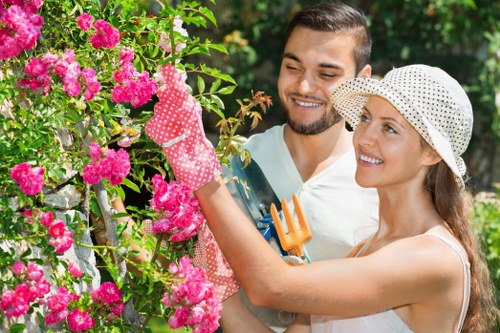
Gardeners Hook is a term that resonates deeply with both amateur and professional gardeners alike. Whether you're just starting your gardening journey or looking to enhance your existing skills, understanding the hooks—or key elements—of successful gardening is essential. In this comprehensive guide, we'll explore the fundamental aspects that make Gardeners Hook a pivotal concept in the world of gardening.
From selecting the right tools to understanding soil health, each section is designed to provide you with actionable insights. Our goal is to equip you with the knowledge needed to create and maintain a thriving garden, regardless of your location or experience level.
So, let's dive into the essential hooks that every gardener should master to achieve a flourishing garden.
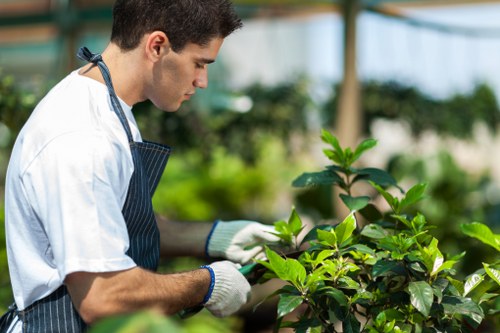
The Importance of Soil Health
At the heart of every successful garden lies healthy soil. Soil health is crucial because it provides the necessary nutrients, support, and environment for plants to grow. Understanding the composition of your soil can help you make informed decisions about what to plant and how to care for your garden.
Here are some key aspects to consider when evaluating and improving soil health:
- Soil Composition: Knowing whether your soil is sandy, clay, or loamy can influence your planting choices.
- pH Levels: Different plants thrive in different pH levels. Testing your soil's pH can help you adjust it to suit your garden's needs.
- Organic Matter: Adding compost or other organic materials can enhance soil fertility and structure.
Maintaining healthy soil is an ongoing process, but the rewards are well worth the effort. Healthy soil leads to robust plant growth, increased resistance to pests and diseases, and better yields.
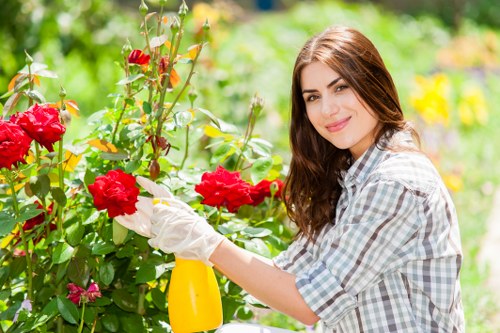
Choosing the Right Plants
Selecting the appropriate plants for your garden is another crucial aspect of Gardeners Hook. Factors such as climate, soil type, and sunlight exposure play significant roles in determining which plants will thrive in your garden.
Consider the following when choosing plants:
- Climate Compatibility: Ensure the plants you select are suited to your local climate conditions, including temperature and rainfall.
- Soil Requirements: Different plants have varying soil needs. Match your plants to your soil type or amend the soil accordingly.
- Sunlight Needs: Some plants require full sun, while others thrive in partial shade or full shade.
By carefully selecting plants that match your garden's environment, you can create a vibrant and sustainable garden that enjoys long-term success.
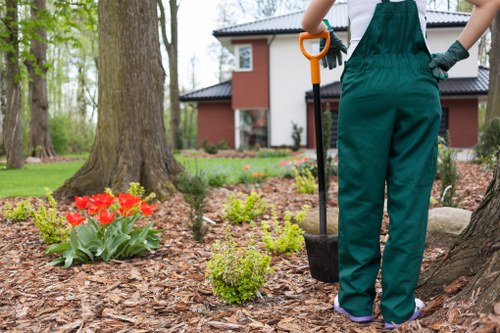
Essential Gardening Tools
Having the right tools is vital for any gardener. The proper tools not only make gardening tasks easier but also help prevent injury and improve the overall health of your plants.
Here are some essential tools every gardener should have:
- Hand Trowel: Perfect for digging small holes, transplanting seedlings, and mixing in nutrients.
- Pruning Shears: Essential for trimming and shaping plants, as well as removing dead or diseased branches.
- Garden Fork: Ideal for aerating soil and turning compost.
- Watering Can: Ensures your plants receive adequate moisture without overwatering.
- Gloves: Protect your hands from thorns, dirt, and potential allergens.
Investing in high-quality gardening tools can make a significant difference in the ease and enjoyment of your gardening experience.
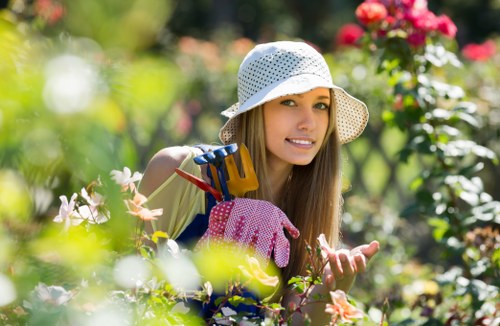
Garden Maintenance Tips
Regular maintenance is key to a healthy and beautiful garden. Consistent care helps prevent issues before they become major problems and ensures that your plants remain strong and vibrant.
Here are some maintenance tips to keep your garden in top shape:
- Watering: Water your plants early in the morning or late in the evening to minimize evaporation and ensure deep watering.
- Weeding: Regularly remove weeds to reduce competition for nutrients and prevent them from spreading.
- Mulching: Apply mulch to retain moisture, suppress weeds, and regulate soil temperature.
- Fertilizing: Provide your plants with the necessary nutrients through appropriate fertilization.
- Pest Control: Monitor your garden for pests and diseases, and take action promptly if issues arise.
By incorporating these maintenance practices into your routine, you'll foster a thriving garden that brings joy and satisfaction.
Local Gardening Resources Near Hook
Living in or near Hook offers numerous advantages for gardeners, thanks to the abundance of local resources and supportive communities. Here are some of the closest areas to Hook that are beneficial for gardening enthusiasts:
- Sunbury: Just a short drive from Hook, Sunbury boasts several nurseries and garden centers offering a wide variety of plants and supplies.
- Staines: Known for its extensive public gardens, Staines provides inspiration and learning opportunities for gardeners.
- Windsor: With its famous Windsor Great Park, gardeners can explore diverse plant species and garden designs.
- Ascot: Ascot hosts seasonal garden shows and workshops, perfect for expanding your gardening knowledge.
- Chertsey: Chertsey offers community gardens and local gardening clubs that foster a sense of camaraderie among gardeners.
- Virginia Water: Known for its ornamental lakes and themed gardens, Virginia Water is a great place to study garden aesthetics.
- Old Windsor: Home to historical gardens, Old Windsor provides a glimpse into traditional gardening techniques.
- Feltham: Feltham features numerous plant shops and garden supply stores, making it easy to find everything you need.
- Guildford: Guildford's horticultural society organizes events and seminars on various gardening topics.
- Farnham: Farnham offers botanical gardens and green spaces ideal for relaxation and plant study.
Each of these nearby areas brings something unique to the table, enhancing the gardening experience for those residing in and around Hook.
Advanced Gardening Techniques
For those looking to take their gardening skills to the next level, exploring advanced techniques can lead to even more impressive results. Here are some methods to consider:
- Crop Rotation: Rotating crops helps prevent soil depletion and reduces the risk of pests and diseases.
- Companion Planting: Growing compatible plants together can enhance growth, deter pests, and improve yields.
- Hydroponics: This soil-less gardening method allows for precise control over nutrients and can increase plant growth rates.
- Permaculture: Designing your garden to mimic natural ecosystems promotes sustainability and resilience.
- Pruning Techniques: Proper pruning can shape plants, encourage fruit production, and maintain plant health.
Incorporating these advanced techniques can lead to a more productive and sustainable garden, providing both aesthetic and practical benefits.
Seasonal Gardening Tips
Gardening is a year-round activity, and each season brings its own set of tasks and considerations. Adapting your gardening practices to the changing seasons ensures that your garden remains healthy and vibrant throughout the year.
Here are some seasonal tips to keep in mind:
- Spring: Focus on planting new seeds, fertilizing, and preparing garden beds for the growing season.
- Summer: Maintain consistent watering, manage pests, and perform regular weeding to keep your garden thriving.
- Autumn: Harvest remaining crops, clear out spent plants, and prepare for winter by adding mulch and compost.
- Winter: Protect sensitive plants, plan for the upcoming year, and perform maintenance on your gardening tools.
By following these seasonal guidelines, you can ensure that your garden remains productive and healthy no matter the time of year.
Community and Support for Gardeners in Hook
Being part of a gardening community can greatly enhance your gardening experience. In Hook, several community resources and groups are available to support and inspire gardeners:
- Local Gardening Clubs: Join clubs to meet fellow gardeners, share tips, and participate in group activities.
- Workshops and Seminars: Attend educational events to learn about new gardening techniques and trends.
- Community Gardens: Get involved in community gardens to practice gardening and contribute to shared green spaces.
- Online Forums and Social Media Groups: Connect with gardeners in Hook through online platforms to exchange ideas and seek advice.
- Garden Tours and Open Houses: Visit local gardens to gain inspiration and see different gardening styles in action.
Engaging with the gardening community in Hook provides valuable support, inspiration, and opportunities to grow as a gardener.
Eco-Friendly Gardening Practices
Adopting eco-friendly gardening practices not only benefits your garden but also contributes to the health of the environment. Here are some sustainable practices to consider:
- Composting: Recycle kitchen scraps and garden waste to create rich compost that enhances soil fertility.
- Rainwater Harvesting: Collect rainwater to use for irrigation, reducing reliance on municipal water supplies.
- Organic Pest Control: Use natural methods to manage pests, such as introducing beneficial insects or using organic sprays.
- Native Plants: Incorporate native plants that are well-suited to your local climate and require less maintenance.
- Energy-Efficient Tools: Choose tools and equipment that consume less energy and have a lower environmental impact.
By implementing these eco-friendly practices, you can create a garden that is both beautiful and sustainable.
Gardening Challenges and Solutions
Gardening comes with its share of challenges, but with the right knowledge and strategies, these obstacles can be overcome. Here are some common gardening challenges and their solutions:
- Pest Infestations: Regular monitoring and the use of natural pest control methods can help manage pests effectively.
- Diseased Plants: Remove affected plants promptly and use disease-resistant varieties to prevent spread.
- Soil Erosion: Implementing ground cover plants and building retaining structures can reduce soil erosion.
- Water Shortages: Utilize efficient watering systems and drought-resistant plants to cope with limited water availability.
- Weed Overgrowth: Consistent weeding and the use of mulches can keep weeds under control.
Addressing these challenges with proactive solutions ensures that your garden remains healthy and productive.
Innovative Gardening Trends
Staying updated with the latest gardening trends can add a modern touch to your garden and improve its functionality. Here are some innovative trends to consider:
- Vertical Gardening: Maximize space by growing plants vertically, ideal for small gardens or urban settings.
- Smart Gardening: Utilize technology such as automated watering systems and garden sensors for optimized care.
- Edible Landscaping: Combine aesthetic garden design with the cultivation of edible plants like vegetables and herbs.
- Permaculture Design: Create self-sustaining ecosystems that require minimal maintenance and support biodiversity.
- Wildlife-Friendly Gardens: Design gardens that attract and support local wildlife, enhancing biodiversity.
Incorporating these trends can make your garden more efficient, sustainable, and visually appealing.
Conclusion
Gardeners Hook encapsulates the essential elements that every gardener should embrace to cultivate a successful and rewarding gardening experience. From understanding soil health and selecting the right plants to utilizing the best tools and adopting sustainable practices, each aspect plays a crucial role in the health and beauty of your garden.
Living near Hook provides access to a wealth of local resources and a supportive community, further enhancing your gardening journey. By staying informed, engaging with fellow gardeners, and continuously learning, you can create a garden that not only thrives but also brings immense personal satisfaction.
Remember, gardening is a blend of art and science, patience and passion. Embrace the hooks of gardening, and watch your garden transform into a lush, vibrant sanctuary.
Frequently Asked Questions
1. What is the best soil type for a beginner gardener?
Loamy soil is ideal for beginners as it retains moisture and nutrients while providing good drainage and aeration, making it suitable for a wide variety of plants.
2. How often should I water my garden?
Generally, watering deeply 2-3 times a week is sufficient. However, the frequency may vary based on the weather, soil type, and specific plant needs. Early morning or late evening watering is recommended to minimize evaporation.
3. What are some eco-friendly pest control methods?
Natural pest control methods include introducing beneficial insects like ladybugs, using neem oil or insecticidal soaps, and planting pest-repellent plants such as marigolds and basil.
4. How can I improve my soil quality naturally?
Adding organic matter such as compost, manure, or leaf mold can enhance soil structure, fertility, and microbial activity, leading to improved soil quality.
5. What are some low-maintenance plants for busy gardeners?
Succulents, lavender, hostas, and ornamental grasses are excellent choices for low-maintenance gardens as they require minimal watering and care once established.
